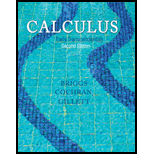
Choose your test Use the test of your choice to determine whether the following series converge.
52.
Want to see the full answer?
Check out a sample textbook solution
Chapter 8 Solutions
Calculus: Early Transcendentals (2nd Edition)
Additional Math Textbook Solutions
Elementary Statistics
College Algebra (7th Edition)
Introductory Statistics
College Algebra with Modeling & Visualization (5th Edition)
Elementary Statistics: Picturing the World (7th Edition)
Elementary Statistics (13th Edition)
- Question Given the graph of f(z) below, find the graph of the derivative of f(z). Select the correct answer below: ° 7-6-5-4-3 123 ° ° 2 -7-6-5-4-3- 123 -° 2-4 -°- °- -7-6-5-4-3-2-1 1 5 +arrow_forwardWhich of the functions shown below is differentiable at = 0? Select the correct answer below: -7-6-5-4- -6-5-4-3-21, -7-6-5-4-3-2 -7-6-5-4-3-2-1 2 4 5 6 -1arrow_forwardcorrect answer is Acould you please show me how to compute using the residue theoremarrow_forward

